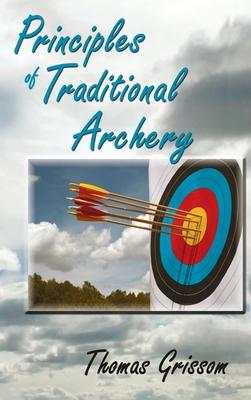A completely new way of thinking about traditional archery takes shape in the pages of this book. The emphasis throughout is on the basic principles that govern the design, performance, and use of all forms of traditional bows and arrows. Here are discussed both the practical as well as the technical considerations behind the choices faced by every archer in selecting and using the tools of the sport. The design of the bow-and the arrow-are analyzed in terms of the underlying principles that determine their performance and use. The concept of an ideal bow and an ideal arrow are introduced as useful ways of thinking about the limitations of real bows and arrows. The important parameters of the bow are identified and a straightforward way of measuring them is described. The effect of draw weight on performance is examined with a view to injecting some realism into the perennial question of how much draw weight is enough. A separate chapter is devoted to the problem of distance shooting and another to clearing up the confusion surrounding the topic of arrow penetration. The effects of variations in arrow straightness, spine, and weight are analyzed to answer the question of when better arrows finally become good enough. The techniques of shooting and an in-depth discussion of the causes, and cures, of target panic are presented. And finally a separate chapter is devoted to a primer on the analytical design of bow limbs. This is a book for all serious archers-and bowyers alike-whether their interest is bow hunting, field and target archery, or bow design, and whether they are newcomers to the sport or experienced archers. The chapters on shooting are among the best ever written and alone make the book invaluable. There is something here to enhance the understanding and practice of archery for all who love and shoot traditional bows and arrows.

A completely new way of thinking about traditional archery takes shape in the pages of this book. The emphasis throughout is on the basic principles that govern the design, performance, and use of all forms of traditional bows and arrows. Here are discussed both the practical as well as the technical considerations behind the choices faced by every archer in selecting and using the tools of the sport. The design of the bow-and the arrow-are analyzed in terms of the underlying principles that determine their performance and use. The concept of an ideal bow and an ideal arrow are introduced as useful ways of thinking about the limitations of real bows and arrows. The important parameters of the bow are identified and a straightforward way of measuring them is described. The effect of draw weight on performance is examined with a view to injecting some realism into the perennial question of how much draw weight is enough. A separate chapter is devoted to the problem of distance shooting and another to clearing up the confusion surrounding the topic of arrow penetration. The effects of variations in arrow straightness, spine, and weight are analyzed to answer the question of when better arrows finally become good enough. The techniques of shooting and an in-depth discussion of the causes, and cures, of target panic are presented. And finally a separate chapter is devoted to a primer on the analytical design of bow limbs. This is a book for all serious archers-and bowyers alike-whether their interest is bow hunting, field and target archery, or bow design, and whether they are newcomers to the sport or experienced archers. The chapters on shooting are among the best ever written and alone make the book invaluable. There is something here to enhance the understanding and practice of archery for all who love and shoot traditional bows and arrows.